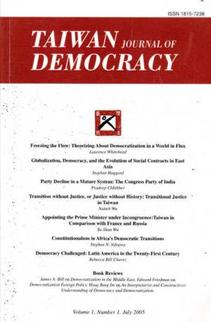
More on the themes of that piece below, but first, If you are a China-watcher, you really need to read Edward Wong's terrific new article in the New York Times, "A Chinese Empire Reborn." Wong was a China correspondent for the NYT for a decade, and he cuts through a lot of the crap about the nature of the Chinese regime. China's rise as a global power, he rightly notes, is occurring mostly through its accumulation of economic and military clout, rather than through emulation of its system and values by ordinary people and elites in other countries. That is, China's rise to date has been mostly about increasing its "hard", not "soft", power, and that order shows few signs of changing anytime soon.
There's one assumption in that essay that bothers me a bit, though. It's that the Chinese regime is inevitably going to continue its ascension in the world--that is, though it probably won't attract more admirers or imitators any time soon, China's relative hard power will continue its rapid increase. Here's the end of Wong's essay:
"Chinese citizens and the world would benefit if China turns out to be an empire whose power is based as much on ideas, values and culture as on military and economic might. It was more enlightened under its most glorious dynasties. But for now, the Communist Party embraces hard power and coercion, and this could well be what replaces the fading liberal hegemony of the United States on the global stage.
It will not lead to a grand vision of world order. Instead, before us looms a void."
But it is not obvious to me that China is especially well-positioned to benefit from these trends, because it's not self-evident that its current economic expansion will continue much longer, or that Chinese leaders will be able to adapt very effectively to the challenges looming on the horizon. The Chinese economy has grown quickly over the last 35 years, but despite many assertions that China's growth record is unprecedented, it is not--over a similar time interval, South Korea, Taiwan, Singapore, Hong Kong, and before them Japan registered equally impressive growth, with a much more equal distribution of gains, to boot. And those earlier "economic miracles" followed a broadly similar pattern--a greater role for market forces, increasing connectivity to the global economy, export-oriented development, high savings rates, broad investment in education and infrastructure, but a continued privileged role for an activist state.
Here's the kicker: in all of those cases, the economy inevitably slowed down, and at the same time their "demographic dividends" also ended. The transition to a different growth model has been wrenching, and it's not clear that Japan, or South Korea, or Taiwan or Singapore has hit on the right balance of reforms--in particular, improved corporate governance, strengthened rule of law, and banking reforms--that would improve their long-term economic prospects. (Singapore has probably come the closest so far.) So why should we expect China to? On all these dimensions, China actually looks much worse than its Asian predecessors, and it has the added burden of a hugely unequal distribution of wealth and a political system that suffers from a grievous, long-term legitimacy deficit. (This leaves aside, too, the question of whether its reported GDP figures actually reflect anything close to reality.) It also is facing a dire demographic picture made worse by the One-Child Policy: its workforce-age population is already declining, and its total population is projected to begin falling in less than 20 years. That does not sound like a country destined for global hegemony to me.
For a more detailed discussion, check out my essay at the Taiwan Journal of Democracy.
 RSS Feed
RSS Feed
